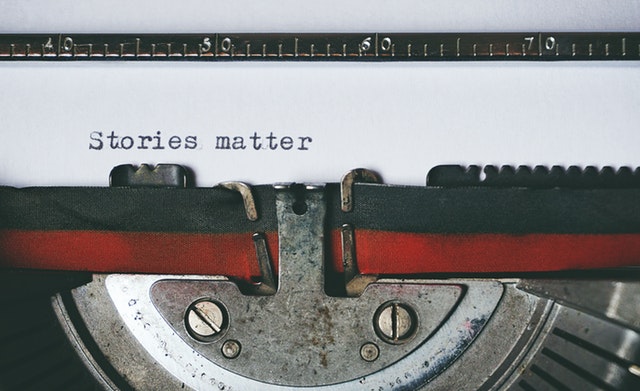More than 25 print and digital media in Latin America will collaborate closely this year in their reporting on climate change. They want to reveal which economic groups are responsible for the destruction of the environment and climate change.
On January 1, 27 Latin American media published a joint editorial in which they ask journalists to treat climate change not only as an environmental or nature conservation problem but as a political and economic issue.
Climate change in the 2020s: What impacts to expect
The journalists of these media are going to uncover the economic and political interests behind the exploitation of monocultures such as oil palms and minerals such as mercury in Latin America. It is the first time that Latin American media work together in this way.
Economy editors
The proposal comes from the team of Ojo Público (Public Eye), a Peruvian digital medium that was created in 2014 with the aim of investigating journalism on cross-border organized crime, corruption, and issues that threaten the public interest, the environment, and human rights.
“For years, the Latin American media economy editors have reported on the increase in GDP or the need for foreign investment, but the environmental and economic costs of these industries are not being investigated,” said Nelly Luna, editor in chief of Ojo. Público.
With income from international donations, Ojo Público has gathered several journalists from the region over the past two years to conduct cross-border investigations into issues such as illegal logging in the Amazon. As a result, media such as InfoAmazonia (Brazil), Página 12 (Argentina), El Comercio (Peru), El Espectador (Colombia), and others in Bolivia, Chile, Mexico, Nicaragua, Paraguay, and Venezuela, supported the initiative.
Different countries and perspectives
That journalists bring the same story from different countries and perspectives is the best way to stimulate reporting on climate change, and to reverse the discourse that economic growth can only be at the expense of ecosystems, Luna says.
This form of collaborative journalism has already achieved milestones such as the Panama Papers, in which 106 media from 76 different countries collaborated, and platforms such as HostWriter, in which reporters with common interests can find each other.
Latin American journalists are now going to do more and collective research into the economic cycle of climate change in the region. “In Latin America, we do not show which industries and legal and economic systems allow the degradation of ecosystems,” says Luna. “The overall picture is lacking to clearly identify these economic groups and to follow the path of money in environmental issues.”
High environmental costs
There are not many of them, but there are already some examples of collaborative journalistic research into resources such as gold, wood or water. These are extracted in Latin America with a high environmental cost and ultimately end up in a chain protected by the legal system of world trade. According to Luna, journalistic research has already been done, but not enough.
That is why they are focusing on cross-border research projects this year. “This year two studies are being conducted, on the rise of monocultures in the Amazon region, and on the use of mercury. In both cases, six media have already agreed to cooperate. Ojo Público will launch the investigations in March during the third international conference Research from science, which takes place in Lima.
In Brazil…
It is important that journalism in the region begin to take a clear stand vis-à-vis the political and economic leaders of climate change, especially in Brazil, where the new president, Jair Bolsonaro, has made major changes in environmental policy announced that are likely to affect the Amazon.
Through cooperation and political positioning, “we reconfirm our journalistic role as a watchdog to ensure that the natural heritage is used for the public good.”
“Climate change is no longer just a scientific story, it is also an economic, political and social story,” said Egyptian journalist Mohamed Yahia, president of the World Federation of Science Journalists. He calls the Latin American initiative “inspiring” for the rest of the South.
For Yahia, writing about the effects of climate change is usually the easiest story, but it’s not the only story. “If we cannot identify the cause of the problem – and many interest groups are trying hard to hide it – then no solution is possible. This is a challenge, especially in the South, but that only means that we have to be more alert and work even harder to expose them. ”
Climate change is a concern for everyone, regardless if it calls for power tools such as pole saws (https://knightsandsnails.com/dws779-vs-dws780/) to clean the environment, it also requires cooperation from everyone to put their hand together to give a resolution to the growing issue of climate change.






 Albeit journal writing might not be relegatable as a literary genre, it might be the most consequential one, since it enables a person detect his private truth and to connect with his inner voice. Following a hectic schedule, with minimal time for cerebration or reflection, the inscriber can consider his journal both a place and an act that enables him to converse together with self and commune with soul, enabling him to form out, process, understand, and accept what he transfers out of his head or heart into his book, often reaching elements of him he never would. Because of this, journal inditing could be looked at cerebrating on paper.
Albeit journal writing might not be relegatable as a literary genre, it might be the most consequential one, since it enables a person detect his private truth and to connect with his inner voice. Following a hectic schedule, with minimal time for cerebration or reflection, the inscriber can consider his journal both a place and an act that enables him to converse together with self and commune with soul, enabling him to form out, process, understand, and accept what he transfers out of his head or heart into his book, often reaching elements of him he never would. Because of this, journal inditing could be looked at cerebrating on paper.



 Even the Toronto Raptors won the NBA Championship before this season, along with the group’s exciting run has fostered the town’s enthusiasm around the basketball to a different level.
Even the Toronto Raptors won the NBA Championship before this season, along with the group’s exciting run has fostered the town’s enthusiasm around the basketball to a different level. So you optate to quit smoking and wonder how vaping can avail? Smoking is one of the hardest addictions to quit. Smokers endeavor all kind of alternatives from patches to nicotine gums but ultimately fail to quit.
So you optate to quit smoking and wonder how vaping can avail? Smoking is one of the hardest addictions to quit. Smokers endeavor all kind of alternatives from patches to nicotine gums but ultimately fail to quit.




